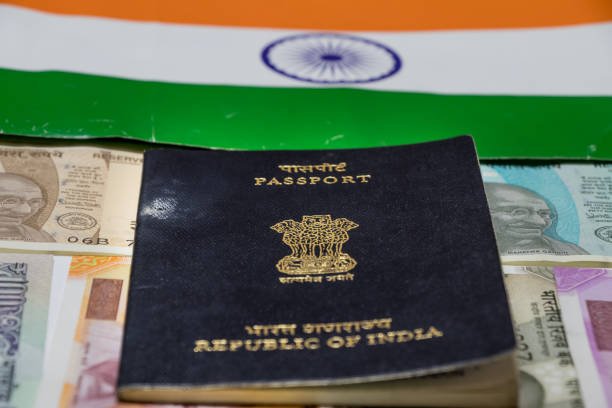Are you considering traveling to India for medical treatment but feeling overwhelmed by the visa process? You’re not alone. Navigating international medical visas can be daunting, especially when you’re also managing your health. This guide is designed to simplify the process of obtaining a medical visa for India, making it as stress-free as possible.
Why Choose India for Medical Treatment?
India has become a global hub for medical tourism, attracting patients from around the world. With cutting-edge medical facilities, skilled healthcare professionals, and significantly lower costs, India offers a compelling option for high-quality medical care. Additionally, many hospitals provide services in English, making communication easier for international patients.
What is a Medical Visa?
A medical MEDICAL VISA FOR INDIA is a special type of visa granted to foreign nationals who wish to seek medical treatment in India. This visa allows you to stay in the country for an extended period, enabling you to undergo treatment and recover without the stress of visa expiration looming over you.
Who is Eligible for a Medical Visa?
To qualify for a INDIAN VISA ONLINE APPLICATION, you must demonstrate that you are seeking medical treatment at a recognized hospital or treatment center in India. The types of medical treatments that qualify for this visa include major surgeries, specialized consultations, organ transplants, and more. It’s essential to have a letter from the hospital confirming your treatment plan.
Required Documents for a Medical Visa
To apply for a medical visa, you’ll need several documents. These typically include:
- A valid passport with at least six months of remaining validity
- A recent passport-sized photograph
- A copy of the completed online visa application form
- Proof of residential address
- Medical reports and a letter from your treating physician
Make sure to double-check the specific requirements for your country, as they can vary slightly.
Steps to Apply for a Medical Visa Online
Applying for a medical visa online involves several steps. First, visit the Indian government’s official visa website. Fill out the online application form carefully, ensuring that all information is accurate. Upload the required documents and pay the visa fee. Once submitted, you will receive an application ID, which you can use to track the status of your visa.
Processing Time for a Medical Visa
The processing time for a medical visa can vary depending on your country of origin and the complexity of your application. Generally, it takes about 3 to 5 business days. However, during peak times or unforeseen circumstances, it could take longer. It’s advisable to apply well in advance of your planned travel dates.
Duration and Extension of a Medical Visa
A medical visa is typically granted for six months, but it can be extended based on the patient’s medical condition and the recommendation of the treating hospital. Extensions are usually granted in six-month increments and require an application through the Foreigners Regional Registration Office (FRRO) in India.
Accompanying Attendants
Patients traveling for medical treatment often require the support of family members. India allows up to two attendants to accompany the patient on a Medical Attendant Visa. The attendants must be blood relatives and are required to provide the same documentation as the patient.
Health Insurance and Financial Considerations
While medical costs in India are generally lower than in many Western countries, it’s still wise to have health insurance. Ensure your insurance covers international treatments, or consider purchasing a short-term policy specifically for your trip. Additionally, maintain a buffer of financial resources to cover any unexpected expenses.
Language and Communication
One of the advantages of seeking medical treatment in India is that many healthcare providers speak English. However, it’s still beneficial to learn some basic Hindi phrases or have a translation app handy. Clear communication with your medical team is crucial for effective treatment and recovery.
Cultural Sensitivity and Local Customs
Being culturally sensitive can greatly enhance your experience in India. Dress modestly, especially when visiting religious sites, and always remove your shoes before entering someone’s home or a place of worship. Understanding and respecting local customs can make your stay more comfortable and enjoyable.
Post-Treatment Care and Recovery
India offers excellent post-treatment care options, including specialized rehabilitation centers and professional home care services. Discuss your post-treatment care plan with your healthcare provider before returning home to ensure a smooth recovery process.
Tourist Activities During Recovery
If your health permits, take some time to explore India’s rich cultural heritage. Visit iconic landmarks such as the Taj Mahal, explore bustling markets, or relax in a serene yoga retreat. Engaging in light tourist activities can uplift your spirits and aid in recovery.
Common Challenges and How to Overcome Them
Traveling for medical treatment can present various challenges, from language barriers to navigating a new healthcare system. Prepare by researching extensively, keeping an open line of communication with your healthcare provider, and having a reliable support system. Keep emergency contacts and local embassy information handy.
Conclusion
Obtaining a medical visa for India may seem complex, but it’s manageable with the right information and preparation. By following the steps outlined in this guide, you can ensure a smoother process and focus on what truly matters—your health and recovery.
Ready to start your medical visa application for India? Visit the Indian government’s official visa website today and take the first step toward high-quality healthcare. Safe travels and best wishes for a speedy recovery!

